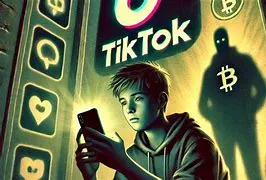In 2025, TikTok finds itself at the center of a global digital storm.
What started as a wildly popular entertainment app is now under intense scrutiny across the world for concerns over data security, national sovereignty, and digital ethics.
Governments across continents — from the United States to India, from Europe to Australia — are either tightening regulations or considering outright bans.
The implications of this digital backlash extend far beyond TikTok; they represent a turning point in how nations handle foreign-owned tech platforms.
Let's dive deeper into why TikTok is under fire, how countries are responding, and what this means for the future of digital security worldwide.
Why TikTok Became a Global Security Concern
At the heart of the controversy is the fear that TikTok’s parent company, ByteDance, which is based in China, could be compelled to share user data with the Chinese government.
Given TikTok’s massive user base — more than 1.5 billion users globally — the potential scale of data exposure is staggering.
Key concerns include:
-
User Data Privacy: Worries about how personal data — including location, biometrics, and browsing behavior — is stored and used.
-
Content Manipulation: Allegations that TikTok censors content critical of China or promotes certain political narratives.
-
Cybersecurity Risks: Fears that TikTok could be used as a backdoor for cyber espionage.
Read more: Why Data Privacy Matters in 2025 ➝
United States: Renewed Push for Ban or Divestment
In 2025, U.S. lawmakers revived efforts to either force ByteDance to sell TikTok to a non-Chinese entity or face a nationwide ban.
The Protecting Americans from Foreign Adversary Controlled Applications Act is gaining bipartisan support.
President Biden, though cautious about direct bans due to free speech implications, has indicated support for stricter regulatory scrutiny.
Notably:
-
Several states have already banned TikTok from government devices.
-
Universities are restricting TikTok access on campus Wi-Fi.
-
A major U.S.-based private equity group is reportedly exploring buying TikTok’s U.S. operations.
India: Already Leading the Charge
India was one of the first countries to ban TikTok back in June 2020, citing concerns over national security after border clashes with China.
The ban was not temporary — TikTok never returned.
India's move set a global precedent and encouraged other nations to reevaluate their stance on foreign tech platforms.
Since then, India has actively promoted homegrown alternatives like Moj and Chingari, while strengthening digital sovereignty laws.
Explore: How India Built a Post-TikTok Social Media Ecosystem ➝
Europe: Cracking Down Through Regulations
Rather than outright bans, European nations are tightening data protection frameworks to rein in TikTok’s influence:
-
France has fined TikTok millions for breaches of GDPR (General Data Protection Regulation).
-
Germany is investigating TikTok’s algorithm for discriminatory practices and lack of transparency.
-
United Kingdom fined TikTok £12.7 million for misusing children's data.
The European Union is also planning to bring platforms like TikTok under the scope of its Digital Services Act (DSA) and Digital Markets Act (DMA) to ensure compliance.
Learn: How GDPR Shapes Global Tech Regulation ➝
Australia and New Zealand: Following the Western Allies
Australia and New Zealand have banned TikTok from all government devices and are considering broader restrictions for private sector platforms too.
Both countries cite the Five Eyes Intelligence Alliance reports, which raise alarms about possible Chinese influence operations through apps like TikTok.
TikTok’s Defense: Transparency and Localization
In response, TikTok has taken steps to regain trust:
-
Launching "Project Clover" in Europe — aiming to store European user data within Europe.
-
Opening Transparency Centers in the U.S. to allow independent auditors to review its practices.
-
Appointing non-Chinese executives to oversee operations in critical regions.
However, many experts argue these steps might be too little, too late, especially given geopolitical tensions.
The Bigger Picture: Beyond TikTok
The TikTok saga highlights a much broader global phenomenon: the weaponization of technology.
Nations are no longer treating digital platforms as mere apps but as extensions of foreign policy and national security interests.
Emerging trends include:
-
Digital Sovereignty: Countries building domestic versions of global apps.
-
Data Localization: Laws mandating that data of a country’s citizens must be stored within that country.
-
Rise of Regional Platforms: A shift from global giants to localized alternatives.
Related: How Digital Sovereignty Is Redefining the Internet ➝
Impact on Creators and Businesses
TikTok’s uncertainty is particularly tough on:
-
Content creators who built careers on the platform.
-
Businesses that rely on TikTok marketing for brand visibility.
-
Advertisers seeking younger, highly engaged audiences.
Many are now diversifying into Instagram Reels, YouTube Shorts, and emerging platforms to mitigate risks.
Read: Top Social Media Alternatives to TikTok in 2025 ➝
Conclusion: Is This the End for TikTok?
TikTok’s future hangs in a delicate balance.
While its popularity remains undeniable, governments worldwide are unwilling to compromise on digital security and sovereignty.
Whether TikTok survives by restructuring, selling off regional operations, or completely transforming its model remains to be seen.
But one thing is clear: the age of "borderless" tech is over.
Nations are reclaiming their digital spaces, and apps like TikTok must either adapt — or face exclusion.

Comments
Post a Comment